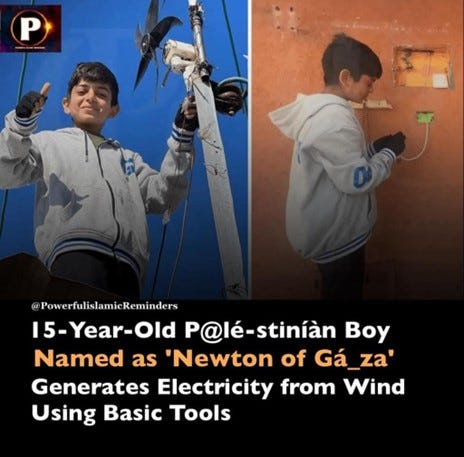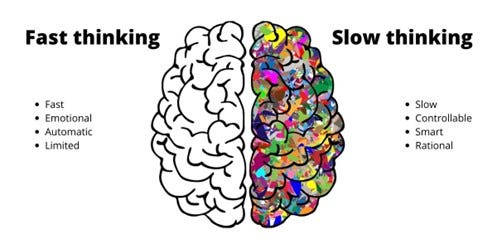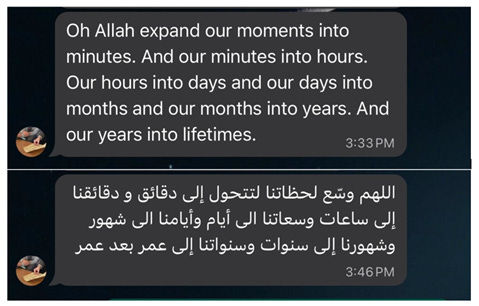How Your Saturday Morning Project Can Land You at Harvard
An unconventional blueprint for admissions success that will let you have more fun and make a deeper impact in high school
Which of these college applicants sounds more interesting to you?
Faisal: He is taking an unprecedented 6 AP courses his senior year, and his report card is a sea of A’s. He is a member of the debate team and VP of the science club. Last summer, he took a demanding (and expensive!) computer science course at Harvard Summer School. To keep up with his taxing schedule, his days are meticulously planned with very little downtime. From the time he gets home to when he goes to bed at 1am, he is knocking items off his to-do list like an academic robot. He just got his scores back from his fifth attempt at the SAT: 1570.
Mariam: She became obsessed with beekeeping when she visited an apiary in Nova Scotia when she was in middle school and decided devote her Saturday mornings throughout high school to exploring this passion. After suffering hundreds of stings, she eventually transformed her backyard into a thriving haven for bees. Her venture into beekeeping blossomed into a small business, and Mariam sells her honey at the farmer’s market every Saturday. She even started a YouTube channel that has inspired countless girls to explore beekeeping. She has not pursued as many APs as her peers, has a few B’s on her transcript, earned a 1410 on the SAT, but is almost always in bed before 10pm.
While they are both strong candidates, I think we can all agree that Mariam is having a much more enjoyable and fulfilling high school career. During the 5-7 minutes that the admissions officers spend with each application, there’s a far greater chance that Mariam’s story will rise to the top.
And yet most families put academic grinders like Faisal on a pedestal and assume that students like Mariam don’t actually exist. No one could possibly have the time to pursue a passion so deeply given the demands of high school, right?
Wrong.
I have met countless Mariams over the years who have leveraged “Saturday morning projects” to college admissions success. One of my private clients created an NGO to virtually tutor Kashmiri children, another one raised thousands of dollars for Palestine by selling handmade hummus door to door, and a former student wrote poetry about growing up as a hijaabi in America that landed her on a TEDx stage.
These were all strong students, but none was at the top of their class. Their applications and essays, however, were dripping with personality, and each sailed into their top choice colleges.
Just today, I read about the “Newton of Gaza” who has figured out how to harness the wind to provide electricity for his family’s tent after their home was destroyed by the Israeli bombardment.
There are two questions we should ask ourselves at this point:
How do these students come up with such out-of-the-box ideas?
How do they possibly have time to pursue these interests while completing a demanding course load.
Today’s FBF endeavors to answer both questions.
1) Thinking Fast and Slow
Daniel Kahneman, a Nobel-prize winning behavioral economist, wrote an amazing book called Thinking Fast and Slow. In it, he introduces the concept of dual-process thinking. System 1 (“Fast”) is instinctual and emotional while System 2 (“Slow”) is more methodical and logical.
Most “good students” are so caught up in doing the things they have to do and cramming information into their brain that they never make time for System 1 thinking.
To tap into their creativity and intuition and generate innovative ideas, teens need to carve out time to give free reign to System 1, allowing it to freely associate and brainstorm.
Once a pool of ideas is generated, they can methodically sift through them using System 2 thinking to evaluate which of them is most feasible and has the deepest impact. This shift from free-flowing ideation to critical assessment is the key to generating and implementing out-of-the-box ideas.
2) The Power of Walking
The question that remains, of course, is how to tap into System 1 thinking.
One of the best ways to see the forest for the trees is to go for a walk in the forest, as Gail Goodwin reminds us. Humans are bipeds; walking is built into our operating system. Modern sedentary lifestyles, however, have prevented most teenagers from using their two feet for what they were designed for.
The single best way I have found to tap into creativity is to go out for a walk and let my brain roam freely. I will sometimes bring a journal or open my notes app and spend 15 minutes jotting down every thought that comes into my head as I walk through the woods.
At other times, I listen to podcasts and audiobooks, and often make connections between something I hear with some challenge I am facing in a different part of my life.
Before I began this Substack, I published a few articles on Medium, including “30 Minutes a Day: The Surprisingly Simple Way to Stand Out in the College Admissions Game,” where I share a few other ideas about how to discover ideas.
3) Prophetic Strategies to Expand Your Minutes into Hours
Even if they manage to make the time to come up with out-of-the-box ideas, how can teenagers find the time to explore them in depth while juggling a demanding course load?
The answer is that they need to unlock barakah in their study time.
There are two ways to do this: harnessing the power of prophetic teachings and learning to leverage the science of learning.
As for the former, one of the most important ways to unlock barakah in your time is to take advantage of the early morning hours by not sleeping after fajr salaat. The salaf used to call this sleep “Naum an-Nadamah” or “the remorseful sleep.” By using the early morning hours on weekdays for schoolwork and on weekends for pursuing their passion projects, students can find time that most kids don’t know exists.
Students should also study in a state of wudu, pray two rakaats before exams, and, perhaps most importantly of all, make du’a for barakah in their time and success in their studies. Look at this beautiful du’a of my good friend Hafiz Na’eel Cajee:
4) Active Recall
Most students have no real idea of how learning works and resort to incredibly inefficient techniques like excessive highlighting and re-reading the textbook.
I am currently teaching a course called “Barakah-Boosted Study Skills,” and the single concept that keeps coming up is active recall, Active Recall, ACTIVE RECALL!
Active recall means that we must constantly ask ourselves questions about what we are studying with the textbook closed. Students think that learning is about stuffing facts into our brains; in reality, it is what we can pull out that counts.
Google sheets, that humble program that many students may have never used, can become an amazing tool for active learning as Ali Abdaal teaches in this video. The core idea is that you put all the big picture questions about what you are learning in column A and the answers to these questions in column B… in white ink.
When you want to review, simply fire up the google sheet and ask yourself the questions in Column A and then check then hidden answers in column B. Color code the questions using traffic light signals indicating whether a question is easy, “ya’nee,” or hard. That allows you to review only the material that you are struggling with.
5) Use ChatGPT to Pour Kerosene on Your Learning
To show my students the power of the google sheets method, I entered in this prompt:
“Create a list of 10 critical thinking questions about the Mayflower compact that will help me understand the topic thoroughly. Provide just the questions, no commentary. I will ask for the answers in a separate prompt.”
Within seconds, I had created this google sheet that would, I dare say, help a student get a 5 on their AP US History exam with just a few minutes of studying and review.
Indeed, as I indicated in last week's FBF, students MUST learn to harness the power of AI to cut down on their study time and have more time for their moonshots and Saturday morning projects. Here are a few prompts you can try right now.
a. Role play
You are a world-class biology professor trained in the Socratic method and the Feynman technique. Ask me questions about [topic] and then evaluate the strengths and weaknesses of my answers.
b. Create tests
I have just finished studying [topic] and I want to see what I remembered. Ask me a series of questions to test my ability to actively recall what I learned. Ask both critical thinking and multiple-choice questions. Assess my answers and give me a grade.
c. Mnemonic creator
I know every [Taylor Swift lyric] but I can’t understand [the Krebs cycle]. Create a mnemonic by attaching this concept to TS lyrics.
d. Language partner
I want you to become a [humorous French waiter] and have a conversation with me knowing that I have only done two years of French. Gently correct my mistakes or suggest how I could have spoken more fluently.
I hope this week’s edition has taught you why Mariam’s style of high school excellence is more effective than Faisal’s at ensuring admissions success, how to start coming up with ideas for your out-of-the box passion projects, and how to unlock barakah in your time to actually implement your ideas.
If you found this article insightful, join the thousands of readers just like you on my Five Before College email list. Every Monday and Thursday I send out college and education tips interspersed with Islamic wisdom to help teenagers succeed in this world and the next.
And, oh yeah, please hit the like button as well!









I honestly enjoyed your idea of the Saturday morning project. I made my husband and my sons (one of whom is in your Barakah Boosted Study Class) listen to it as well. Always waiting for your next substack.
W newsletter